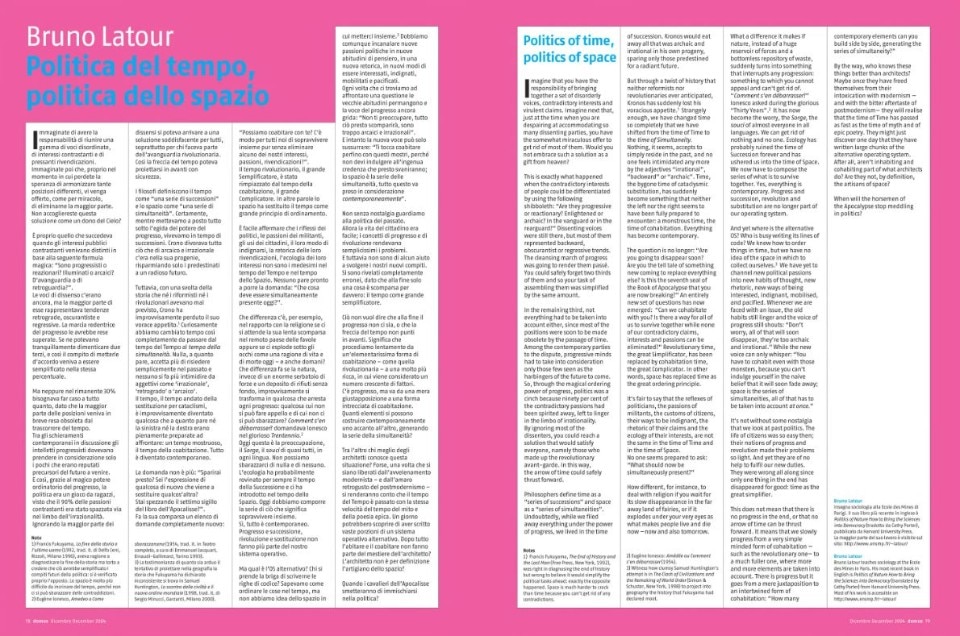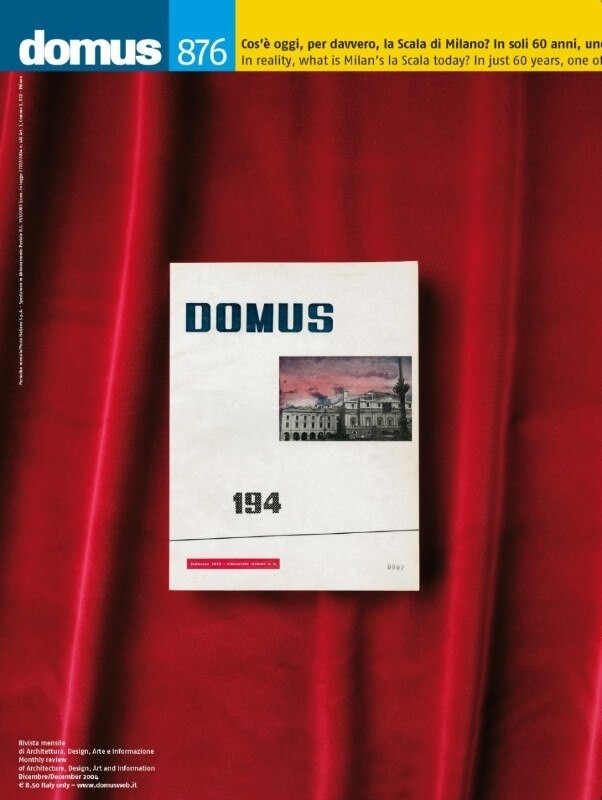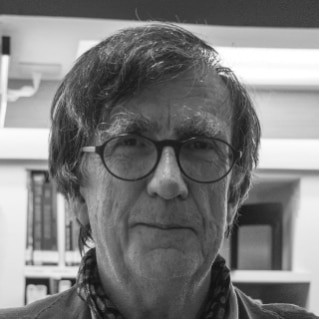Imagine that you have the responsibility of bringing together a set of disorderly voices, contradictory interests and virulent claims. Imagine next that, just at the time when you are despairing at accommodating so many dissenting parties, you have the somewhat miraculous offer to get rid of most of them. Would you not embrace such a solution as a gift from heaven?
This is exactly what happened when the contradictory interests of people could be differentiated by using the following shibboleth: “Are they progressive or reactionary? Enlightened or archaic? In the vanguard or in the rearguard?” Dissenting voices were still there, but most of them represented backward, obscurantist or regressive trends. The cleansing march of progress was going to render them passé. You could safely forget two thirds of them and so your task of assembling them was simplified by the same amount.
In the remaining third, not everything had to be taken into account either, since most of the positions were soon to be made obsolete by the passage of time. Among the contemporary parties to the dispute, progressive minds had to take into consideration only those few seen as the harbingers of the future to come. So, through the magical ordering power of progress, politics was a cinch because ninety per cent of the contradictory passions had been spirited away, left to linger in the limbo of irrationality. By ignoring most of the dissenters, you could reach a solution that would satisfy everyone, namely those who made up the revolutionary avant-garde. In this way, the arrow of time could safely thrust forward.
Philosophers define time as a “series of successions” and space as a “series of simultaneities”. Undoubtedly, while we filed away everything under the power of progress, we lived in the time of succession. Kronos would eat away all that was archaic and irrational in his own progeny, sparing only those predestined for a radiant future.

But through a twist of history that neither reformists nor revolutionaries ever anticipated, Kronos has suddenly lost his voracious appetite. Strangely enough, we have changed time so completely that we have shifted from the time of Time to the time of Simultaneity. Nothing, it seems, accepts to simply reside in the past, and no one feels intimidated any more by the adjectives “irrational”, “backward” or “archaic”. Time, the bygone time of cataclysmic substitution, has suddenly become something that neither the left nor the right seems to have been fully prepared to encounter: a monstrous time, the time of cohabitation. Everything has become contemporary.
The question is no longer: “Are you going to disappear soon? Are you the tell tale of something new coming to replace everything else? Is this the seventh seal of the Book of Apocalypse that you are now breaking?” An entirely new set of questions has now emerged: “Can we cohabitate with you? Is there a way for all of us to survive together while none of our contradictory claims, interests and passions can be eliminated?” Revolutionary time, the great Simplificator, has been replaced by cohabitation time, the great Complicator. In other words, space has replaced time as the great ordering principle.
Space is much harder to crack than time because you can’t get rid of any contradictions.
It’s fair to say that the reflexes of politicians, the passions of militants, the customs of citizens, their ways to be indignant, the rhetoric of their claims and the ecology of their interests, are not the same in the time of Time and in the time of Space.
No one seems prepared to ask: “What should now be simultaneously present?” How different, for instance, to deal with religion if you wait for its slow disappearance in the far away land of fairies, or if it explodes under your very eyes as what makes people live and die now — now and also tomorrow. What a difference it makes if nature, instead of a huge reservoir of forces and a bottomless repository of waste, suddenly turns into something that interrupts any progression: something to which you cannot appeal and can’t get rid of.
“Comment s’en débarrasser?” Ionesco asked during the glorious “Thirty Years”. It has now become the worry, the Sorge, the souci of almost everyone in all languages. We can get rid of nothing and no one. Ecology has probably ruined the time of Succession forever and has ushered us into the time of Space. We now have to compose the series of what is to survive together. Yes, everything is contemporary. Progress and succession, revolution and substitution are no longer part of our operating system.

And yet where is the alternative OS? Who is busy writing its lines of code? We knew how to order things in time, but we have no idea of the space in which to collect ourselves. We have yet to channel new political passions into new habits of thought, new rhetoric, new ways of being interested, indignant, mobilised, and pacified. Whenever we are faced with an issue, the old habits still linger and the voice of progress still shouts: “Don’t worry, all of that will soon disappear, they’re too archaic and irrational.” While the new voice can only whisper: “You have to cohabit even with those monsters, because you can’t indulge yourself in the naive belief that it will soon fade away; space is the series of simultaneities, all of that has to be taken into account at once.”
It’s not without some nostalgia that we look at past politics. The life of citizens was so easy then; their notions of progress and revolution made their problems so light. And yet they are of no help to fulfil our new duties. They were wrong all along since only one thing in the end has disappeared for good: time as the great simplifier.
This does not mean that there is no progress in the end, or that no arrow of time can be thrust forward. It means that we slowly progress from a very simple-minded form of cohabitation — such as the revolutionary one — to a much fuller one, where more and more elements are taken into account. There is progress but it goes from a mere juxtaposition to an intertwined form of cohabitation: “How many contemporary elements can you build side by side, generating the series of simultaneity?”
By the way, who knows these things better than architects? Maybe once they have freed themselves from their intoxication with modernism — and with the bitter aftertaste of postmodernism— they will realise that the time of Time has passed as fast as the time of myth and of epic poetry. They might just discover one day that they have written large chunks of the alternative operating system. After all, aren’t inhabiting and cohabiting part of what architects do? Are they not, by definition, the artisans of space?
When will the horsemen of the Apocalypse stop meddling in politics?


